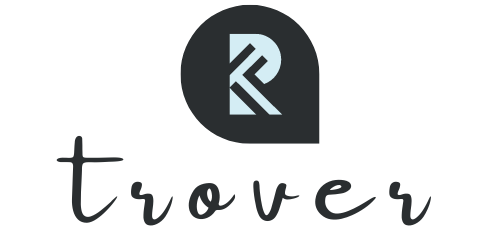The Pearson Test of English (PTE) is a vital English proficiency exam recognized globally, particularly for academic purposes and immigration. It assesses a candidate’s ability to effectively communicate in English and demands rigorous preparation for success.
This blog post aims to equip you with practical tips and strategies for preparing for the PTE exam. By understanding the exam’s structure and developing a focused approach to study, you can significantly increase your chances of achieving a high score.
1. Understand the PTE Exam Format

Understanding the format of the PTE exam is crucial for effective preparation. The test is divided into three main parts: Speaking & Writing, Reading, and Listening. Each part assesses different aspects of your English language skills. The Speaking & Writing section evaluates your ability to express ideas in English, both orally and in written form.
The Reading section tests your comprehension skills, while the Listening section assesses how well you understand spoken English. The PTE scoring system ranges from 10 to 90 points, giving a detailed assessment of your proficiency in each skill area.
2. Create a Study Schedule
Creating a structured study schedule is a fundamental step in your PTE preparation. Start by evaluating your current proficiency in English and the time you have before your exam date. Based on this, devise a schedule that allows you to focus on each section of the PTE exam, ensuring a well-rounded preparation. It’s essential to maintain consistency in your study habits.
Allocate specific days and times for focused study sessions, and stick to this routine diligently. Remember, regular practice and dedicated study time are more effective than cramming sessions. Balance your schedule to include time for review, regularly doing a PTE mock test on which you can find plenty of additional info, and rest, ensuring you do not burn out during your preparation journey.
3. Gather Study Materials

Compiling the right study materials is crucial for effective PTE preparation. Begin with official PTE practice tests and authoritative textbooks that cover the exam’s format extensively. These resources provide a realistic overview of what to expect, including question types and difficulty levels.
Additionally, explore online resources such as tutorials, practice exercises, and forums where you can interact with other test-takers. Utilize resources that offer both theoretical knowledge and practical application, ensuring a comprehensive understanding of the exam. Also, consider investing in language learning apps and online courses focused on PTE preparation.
4. Set Clear Goals
Setting specific, measurable goals for your PTE preparation is fundamental. Determine what scores you need for each section to achieve your overall target. For instance, if you are aiming for a score of 65 in each module, break down your study plan to focus on areas where you are currently underperforming.
These goals should be ambitious yet realistic, considering your starting level and the time available for preparation. Regularly review and adjust your goals as needed, based on your progress. Goal setting not only provides direction and motivation but also helps in tracking your performance and identifying areas that need more focus.
5. Focus on Time Management
Effective time management is a critical skill for PTE success. The exam has strict time limits for each section, and managing this time efficiently can significantly impact your performance. Develop strategies to maximize your efficiency, like quickly analyzing and understanding questions, and developing a mental checklist for answering them.
Practice pacing yourself during mock exams to get a feel for the time constraints. Learning to skim-read for the main ideas in reading passages and planning your essay structures beforehand can save precious minutes.
6. Practice Regularly
Consistent practice is key to mastering the PTE exam. Dedicate time daily or weekly to work on each section of the test. This could include practicing speaking skills one day, working on writing the next, and so on. Regular practice helps in building familiarity with the exam format and question types.
It also aids in identifying personal weaknesses and areas that need improvement. Incorporate various practice activities like timed exercises, sample questions, and language games to keep your study sessions engaging.
7. Mock Tests and Sample Papers

Incorporating mock tests and sample papers into your preparation is essential. These simulate the actual PTE exam environment, helping you acclimate to the test’s structure and timing. Regularly taking mock tests allows you to apply what you’ve learned in a realistic setting. Analyze your performance in these tests to identify patterns in your errors and areas where you can improve.
Reputable sources for PTE sample papers and mock tests include official PTE practice materials and well-regarded language learning platforms. Treat each mock test as a real exam scenario, which will help reduce anxiety and improve your time management on the actual test day.
8. Develop Strong Language Skills
Developing strong language skills is at the core of acing the PTE exam. Focus on enhancing your reading, writing, listening, and speaking abilities. Engage in activities that improve vocabulary and grammar, such as reading diverse materials, writing essays, and practicing speaking with fluent English speakers.
Listen to English podcasts and watch movies in English to improve listening skills. Regularly practicing these skills in real-world contexts will make you more comfortable with the language, which is crucial for performing well in the PTE exam.
9. Test-Taking Strategies

Adopting effective test-taking strategies is crucial for each section of the PTE. In the speaking section, practice speaking clearly and at a natural pace. In the writing section, focus on structuring your essays coherently and using a variety of sentence structures and vocabulary. For the reading section, develop skills for quickly identifying key information and understanding the context.
In the listening section, practice summarizing spoken texts and recognizing accents. Familiarize yourself with different question types in each section and develop a strategy for approaching them. For instance, learn to quickly identify keywords in reading and listening exercises, or practice organizing your thoughts before speaking.
10. Review and Feedback
Reviewing your performance and seeking feedback is an important part of PTE preparation. After each practice test, take time to go through your answers, especially those you got wrong. Understand why you made those mistakes and learn from them. Regular review sessions help solidify your learning and prevent the same errors in the future.
Additionally, seek feedback from teachers, tutors, or study partners. They can provide insights into areas of improvement and offer new strategies or perspectives. This external feedback can be invaluable in enhancing your understanding and performance.
11. Stay Positive and Relaxed

Maintaining a positive mindset and staying relaxed are crucial for PTE success. Stress and anxiety can significantly impact your performance. Develop techniques to manage stress, such as deep breathing exercises, meditation, or regular physical activity. Ensure you get adequate rest and maintain a healthy lifestyle during your preparation period.
Staying positive not only helps in dealing with the pressure of the exam but also improves overall learning and retention. Remember, confidence and a calm mind can greatly enhance your ability to perform well in the exam.
Conclusion
Preparing for the PTE exam requires a strategic approach, encompassing understanding the exam format, setting clear goals, managing time effectively, regular practice, and developing strong language skills. Incorporating mock tests and seeking feedback are also integral to a successful preparation journey.
Most importantly, maintaining a positive and relaxed mindset is key. Start your preparation with these tips in mind and approach the PTE exam with confidence and the right tools to succeed.







